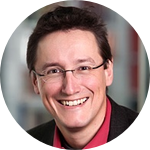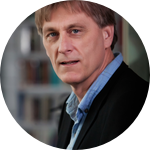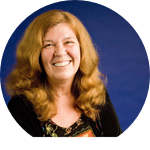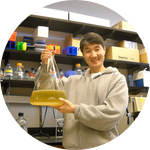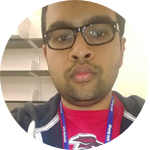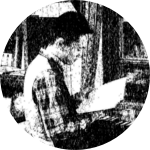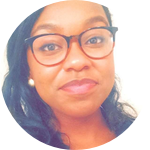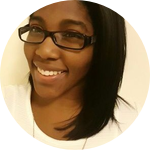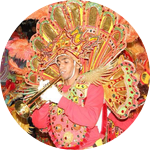About This Project
Genetic engineers cut and paste DNA in test tubes. The recombined DNA is used to transform Escherichia coli, a procedure that is labor intensive and requires expensive equipment. We are developing an alternative approach to transformation using Acinetobacter baylyi ADP1, a relative of E. coli that naturally imports DNA without human assistance. Our techniques could enable genetic engineering in modestly equipped laboratories in high schools and community colleges.
Ask the Scientists
Join The DiscussionWhat is the context of this research?
Genetic engineers have been cutting and pasting DNA into plasmids (bacterial mini-chromosomes) for over 40 years. They "inject" recombined DNA into live Escherichia coli cells, which subsequently replicate the plasmids and the foreign genes they carry. E. coli cannot take up DNA without substantial human assistance (labor and expensive scientific instruments).
Acinetobacter baylyi ADP1 grows under the same conditions as E. coli at comparable rates, but requires no encouragement to import DNA from its environment. The only catch is that plasmids that replicate in E. coli don't also replicate in A. baylyi. We are creating plasmids that replicate in both species to harness A. baylyi for genetic engineering.
What is the significance of this project?
The experiments proposed here will show the that Acinetobacter baylyi ADP1 can be transformed with foreign DNA cloned into our shuttle vectors, thus obviating the need for expensive equipment to perform a simple transformation. We plan to make our genetic tools freely accessible to modestly funded labs in community colleges, high schools and private homes. They could also be used to streamline workflows at well-funded labs.
What are the goals of the project?
We are constructing shuttle vectors for Acinetobacter baylyi ADP1, a naturally competent relative of E. coli that grows rapidly under identical culture conditions. We will add ligation reactions containing small amounts of cut and pasted DNA to mid-log cultures of A. baylyi. The resulting bacterial culture will be spread onto Lysogeny Broth agar plates supplemented with antibiotics to select against untransformed cells. If the transformation is successful, we will see the presence of antibiotic-resistant bacterial colonies. These colonies will prove that we can transform bacteria without effort or expensive equipment.
Budget
We currently have the funds to register for the iGEM jamboree, thanks to the Emory College Departments of Biology and Chemistry, but not for research reagents (test tubes, pipette tips, gloves, growth media), travel or lodging.
Endorsed by
Meet the Team
Team Bio
The Emory International Genetic Engineered Machine team is new and will be participating in the iGEM competition for the first time in September 2016. The program offers training opportunities, including ideation, team-building and communication, that are not available in the traditional curriculum.
Ichiro Matsumura
Ichiro was once an undergraduate at MIT and subsequently at Ph.D. student at UC Berkeley. He was a postdoc at UT Austin before he became an assistant prof at Emory University. He normally studies mechanisms of adaptive protein evolution; he believes that evolutionary theory is the best instruction manual for biological engineers.
His published work, including prior experiments with Acinetobacter baylyi ADP1 can be found here: https://scholar.google.com/cit...
Maruf M. Hoque
Maruf completed his bachelors and masters at Georgia State University. He was the iGEM graduate advisor at GSU in 2014-2015. Afterwards, he became a lab coordinator at Emory University in the department of Rehabilitation Medicine and is looking forward to enrolling in a Neuroscience graduate program in 2017.
Cyrillus Tan
Cyrillus is a junior student at Emory College majoring in biology and computer science. While his research interest is to reform the personalized medicine with information technology, he is also a student of international economics concerning with modern business model. He intends to pursue a doctoral degree in biomedical informatics after graduation.
Hyun Hwang
I am a rising Emory College sophomore, pursuing degrees in Biology and Chemistry. While at Emory, I am working at Dr. Yoon's lab assisting an investigator researching about treatments for diabetic neuropathy. I am also part of the Emory iGEM team working on quite an exciting synthetic biology research.
When I am outside of lab, I spend my time reading books and playing squash!
Jasmine Carrothers
I'm a rising senior at Emory University majoring in Chemistry and International Studies. After graduating, I intend on pursuing a doctoral degree and would like to do research in medicine or public health. When I'm not in the lab, you can find me playing tennis or reading a book!
Talia Akoh-Arrey
Talia is a senior at Emory University pursuing a double major in Neuroscience and Creative Writing. Following graduation, she is eager to begin her MD/PhD dual degree program and from there, would like to go on to do translational research in neuropharmacology.
This summer, she is hard at work researching the effects of ethanol and microglia phenotypal regulation on neurogenesis. But she still finds time to write short stories, paint, cook, and dominate the internet.
Kathy Pei Li
I am a rising sophomore at Emory University, majoring in Biology and Violin Performance. I am currently studying abroad in South Korea. While at Emory, I work in Dr. Jin-Tang Dong's lab at Winship Cancer Institute learning lab practices and assisting a Emory graduate student in her research.
Outside of the lab, I focus most of my time on music, video games, and the occasional inspired workout.
I am excited to be a part of this iGEM team!
Sujith Swarna
Sujith is a rising sophomore at Emory University, majoring in Neuroscience and Psychology. Currently, he is researching the virulence of both S. aureus and S. pneumoniae.
Outside of lab, he loves to play his guitar and piano. Every once in a while, he also likes to capture a Pidgey or two.
Lab Notes
Nothing posted yet.
Project Backers
- 13Backers
- 13%Funded
- $622Total Donations
- $47.85Average Donation
